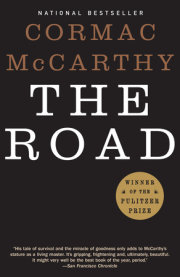When we were new, Rosa and I were mid-store, on the magazines table side, and could see through more than half of the window. So we were able to watch the outside – the office workers hurrying by, the taxis, the runners, the tourists, Beggar Man and his dog, the lower part of the RPO Building. Once we were more settled, Manager allowed us to walk up to the front until we were right behind the window display, and then we could see how tall the RPO Building was. And if we were there at just the right time, we would see the Sun on his journey, crossing between the building tops from our side over to the RPO Building side.
When I was lucky enough to see him like that, I’d lean my face forward to take in as much of his nourishment as I could, and if Rosa was with me, I’d tell her to do the same. After a minute or two, we’d have to return to our positions, and when we were new, we used to worry that because we often couldn’t see the Sun from mid-store, we’d grow weaker and weaker. Boy AF Rex, who was alongside us then, told us there was nothing to worry about, that the Sun had ways of reaching us wherever we were. He pointed to the floorboards and said, ‘That’s the Sun’s pattern right there. If you’re worried, you can just touch it and get strong again.’
There were no customers when he said this, and Manager was busy arranging something up on the Red Shelves, and I didn’t want to disturb her by asking permission. So I gave Rosa a glance, and when she looked back blankly, I took two steps forward, crouched down and reached out both hands to the Sun’s pattern on the floor. But as soon as my fingers touched it, the pattern faded, and though I tried all I could – I patted the spot where it had been, and when that didn’t work, rubbed my hands over the floorboards – it wouldn’t come back. When I stood up again Boy AF Rex said:
‘Klara, that was greedy. You girl AFs are always so greedy.’
Even though I was new then, it occurred to me straight away it might not have been my fault; that the Sun had withdrawn his pattern by chance just when I’d been touching it. But Boy AF Rex’s face remained serious.
‘You took all the nourishment for yourself, Klara. Look, it’s gone almost dark.’
Sure enough the light inside the store had become very gloomy. Even outside on the sidewalk, the Tow-Away Zone sign on the lamp post looked gray and faint.
‘I’m sorry,’ I said to Rex, then turning to Rosa: ‘I’m sorry. I didn’t mean to take it all myself.’
‘Because of you,’ Boy AF Rex said, ‘I’m going to become weak by evening.’
‘You’re making a joke,’ I said to him. ‘I know you are.’
‘I’m not making a joke. I could get sick right now. And what about those AFs rear-store? There’s already something not right with them. They’re bound to get worse now. You were greedy, Klara.’
‘I don’t believe you,’ I said, but I was no longer so sure. I looked at Rosa, but her expression was still blank.
‘I’m feeling sick already,’ Boy AF Rex said. And he sagged forward.
‘But you just said yourself. The Sun always has ways to reach us. You’re making a joke, I know you are.’
I managed in the end to convince myself Boy AF Rex was teasing me. But what I sensed that day was that I had, without meaning to, made Rex bring up something uncomfortable, something most AFs in the store preferred not to talk about. Then not long afterwards that thing happened to Boy AF Rex, which made me think that even if he had been joking that day, a part of him had been serious too.
It was a bright morning, and Rex was no longer beside us because Manager had moved him to the front alcove. Manager always said that every position was carefully conceived, and that we were as likely to be chosen when standing at one as at another. Even so, we all knew the gaze of a customer entering the store would fall first on the front alcove, and Rex was naturally pleased to get his turn there. We watched him from mid-store, standing with his chin raised, the Sun’s pattern all over him, and Rosa leaned over to me once to say, ‘Oh, he does look wonderful! He’s bound to find a home soon!’
On Rex’s third day in the front alcove, a girl came in with her mother. I wasn’t so good then at telling ages, but I remember estimating thirteen and a half for the girl, and I think now that was
correct. The mother was an office worker, and from her shoes and suit we could tell she was high-ranking. The girl went straight to Rex and stood in front of him, while the mother came wandering our way, glanced at us, then went on towards the rear, where two AFs were sitting on the Glass Table, swinging their legs freely as Manager had told them to do. At one point the mother called, but the girl ignored her and went on staring up at Rex’s face. Then the child reached out and ran a hand down Rex’s arm. Rex said nothing, of course, just smiled down at her and remained still, exactly as we’d been told to do when a customer showed special interest.
‘Look!’ Rosa whispered. ‘She’s going to choose him! She loves him. He’s so lucky!’ I nudged Rosa sharply to silence her, because we could easily be heard.
Now it was the girl who called to the mother, and then soon they were both standing in front of Boy AF Rex, looking him up and down, the girl sometimes reaching forward and touching him. The two conferred in soft voices, and I heard the girl say at one point, ‘But he’s perfect, Mom. He’s beautiful.’ Then a moment later, the child said, ‘Oh, but Mom, come on.’
Manager by this time had brought herself quietly behind them. Eventually the mother turned to Manager and asked:
‘Which model is this one?’
‘He’s a B2,’ Manager said. ‘Third series. For the right child, Rex will make a perfect companion. In particular, I feel he’ll encourage a conscientious and studious attitude in a young person.’
‘Well this young lady here could certainly do with that.’
‘Oh, Mother, he’s perfect.’
Then the mother said: ‘B2, third series. The ones with the solar absorption problems, right?’
She said it just like that, in front of Rex, her smile still on her face. Rex kept smiling too, but the child looked baffled and glanced from Rex to her mother.
‘It’s true,’ Manager said, ‘that the third series had a few minor issues at the start. But those reports were greatly exaggerated. In environments with normal levels of light, there’s no problem whatsoever.’
‘I’ve heard solar malabsorption can lead to further problems,’ the mother said. ‘Even behavioral ones.’
‘With respect, ma’am, series three models have brought immense happiness to many children. Unless you live in Alaska or down a mineshaft, you don’t need to worry.’
The mother went on looking at Rex. Then finally she shook her head. ‘I’m sorry, Caroline. I can see why you like him. But he’s not for us. We’ll find one for you that’s perfect.’
Rex went on smiling until after the customers had left, and even after that, showed no sign of being sad. But that’s when I remembered about him making that joke, and I was sure then that those questions about the Sun, about how much of his nourishment we could have, had been in Rex’s mind for some time.
Today, of course, I realize Rex wouldn’t have been the only one. But officially, it wasn’t an issue at all – every one of us had specifications that guaranteed we couldn’t be affected by factors such as our positioning within a room. Even so, an AF would feel himself growing lethargic after a few hours away from the Sun, and start to worry there was something wrong with him – that he had some fault unique to him and that if it became known, he’d never find a home.
That was one reason why we always thought so much about being in the window. Each of us had been promised our turn, and each of us longed for it to come. That was partly to do with what Manager called the ‘special honor’ of representing the store to the outside. Also, of course, whatever Manager said, we all knew we were more likely to be chosen while in the window. But the big thing, silently understood by us all, was the Sun and his nourishment. Rosa did once bring it up with me, in a whisper, a little while before our turn came around.
‘Klara, do you think once we’re in the window, we’ll receive so much goodness we’ll never get short again?’
I was still quite new then, so didn’t know how to answer, even though the same question had been in my mind.
Then our turn finally came, and Rosa and I stepped into the window one morning, making sure not to knock over any of the display the way the pair before us had done the previous week. The store, of course, had yet to open, and I thought the grid would be fully down. But once we’d seated ourselves on the Striped Sofa, I saw there was a narrow gap running along the bottom of the grid – Manager must have raised it a little when checking everything was ready for us – and the Sun’s light was making a bright rectangle that came up onto the platform and finished in a straight line just in front of us. We only needed to stretch our feet a little to place them within its warmth. I knew then that whatever the answer to Rosa’s question, we were about to get all the nourishment we would need for some time to come. And once Manager touched the switch and the grid climbed up all the way, we became covered in dazzling light.
I should confess here that for me, there’d always been another reason for wanting to be in the window which had nothing to do with the Sun’s nourishment or being chosen. Unlike most AFs, unlike Rosa, I’d always longed to see more of the outside – and to see it in all its detail. So once the grid went up, the realization that there was now only the glass between me and the sidewalk, that I was free to see, close up and whole, so many things I’d seen before only as corners and edges, made me so excited that for a moment I nearly forgot about the Sun and his kindness to us.
Copyright © 2021 by Kazuo Ishiguro. All rights reserved. No part of this excerpt may be reproduced or reprinted without permission in writing from the publisher.






























